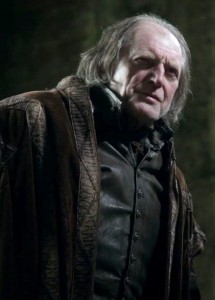 George RR Martin may have drawn inspiration for Lord Frey from Richard Neville, Earl of Warwick, known as “Warwick the Kingmaker”.
George RR Martin may have drawn inspiration for Lord Frey from Richard Neville, Earl of Warwick, known as “Warwick the Kingmaker”.
It seems like George RR Martin sought out the worst “betrayers” in the Wars of the Roses and Hundred Years’ War when he created Lord Frey: Warwick, Thomas Stanley, and Ralph Neville. Almost like he was saying to himself, “Right, how evil can we make this character?” In the A Song of Fire and Ice world, disloyalty seems to be the worst possibly act and the one punished the most harshly.
Martin may draw from Thomas Stanley for the cold opportunism, lateness to battle, and terrible line about his heir and Ralph Neville for the treachery and numerous children. However, I think Warwick’s betrayal of Edward IV, after Edward repeatedly broke promises for marriage alliances, may also have inspired Martin. Taking a closer look at Warwick, a charismatic, but perhaps ultimately selfish man, reveals some interesting parallels between the real-life man and the George RR Martin’s creation.
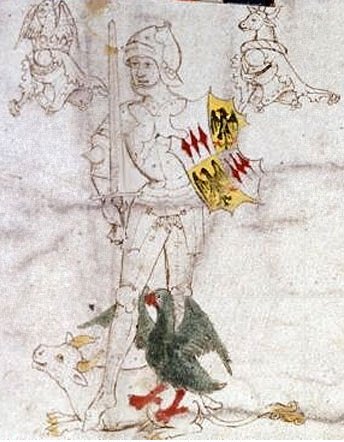
Walder Frey, Warwick
Warwick cut a bold swath across English history. Charismatic, fearless, generous, arrogant, a touch greedy, and extremely ambitious, Warwick was a brilliant strategist, statesman, and naval commander. He also had the common touch and people loved him. He knew little tricks that endeared him to all. Every day Warwick’s London manor cooked up to six oxen for breakfast and let any man who could claim he knew Warwick or a member of his household take away as much meat as he could spear on a dagger.
However, like most of his caste, spilling blood for material gain was not a problem. Warwick came of age living in a turbulent Northern England where ferociously loyal people lived on sparsely populated territories mired in violence. The Scots regularly raided the border villages and blood feuds plagued the land.
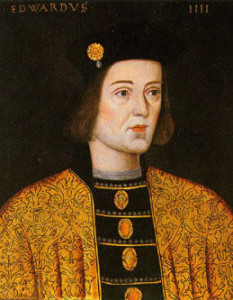
Warwick’s powerful family, the Nevilles, were locked in an increasingly bloody conflict with the Percys. Nerve-rackingly, throughout the 1450s, both families kept building up their armies. Finally, the feud triggered military action. It then escalated into the first phase of the Wars of the Roses when factions hardened as the Nevilles aligned with Richard of York against the Percys.
The combined abundant resources of Warwick and the House of York’s ultimately proved decisive in 1461. Warwick’s military might helped put Edward IV on the throne. This was thanks to Warwick’s great landholdings. Not only was Warwick one of the wealthiest landowners in England, his extensive lands let him call up a huge army of men when needed – and this gave him the power to create kings. Much like money can “buy” elections today through advertising, back then having a lot of land equaled wealth and could “buy” military victories and put kings on thrones.
However, not unlike Lord Frey who crucially supported Robb’s military when he let them cross the Twins, Warwick expected compensation for his indispensable support.
Although Edward gave Warwick lands and enormous influence, this proved insufficient. For several years, Warwick was the power behind the throne, guiding the young, somewhat unsure king’s hand in most decisions. Perhaps, Warwick came to think of himself as king – or even mightier than kings. His overweening pride was to play a huge role in the events that followed.
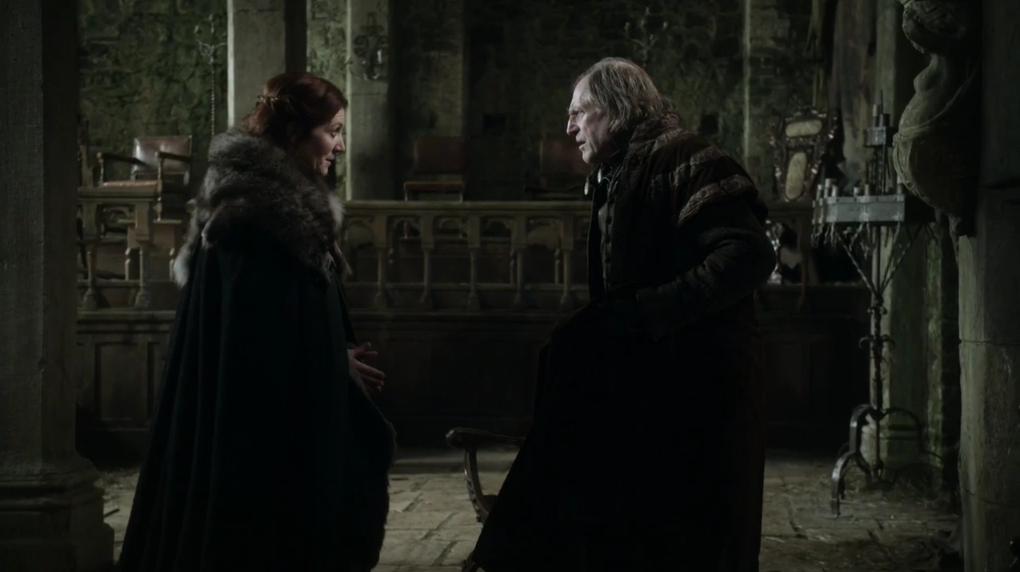
With both Game of Thrones’ Walder Frey and his possible real-life counterpart Richard Neville, Earl of Warwick, it always seems to come back around to marriages. Marriages define the men, could enrich them, and did lead them to betray the leader to whom they had sworn fealty and switch sides.
Most of Frey’s energy is concentrated around marriages for his children and himself. When he chooses to betray Robb, he does so at a wedding. George RR Martin appears to deliberately drive home the association between Frey and weddings—perhaps, he does so with Warwick on his mind. When you look at Warwick from an extremely high-level perspective, marriage issues often fatefully changed his course of action.
There is certainly overlap between Warwick and Walder Frey’s stories. Both men had a restless ambition that propelled them to betray their lords. Both Walder Frey and Warwick had children they wanted to wed at any cost. Ultimately, both men became furious by broken promises, humiliations, and marriage agreements.
A Valuable Hand for Warwick to Play
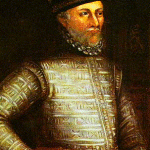
When Robb Stark became King of the North, his hand in marriage became a valuable commodity. For example, after Edmure dismisses Catelyn’s concerns that Lord Frey will take their delay arriving at the wedding as a slight, Catelyn notes “He’s getting a wedding. It was a king he wanted” (S3, E7, ~5:00).
Warwick was also keenly aware that the young King Edward’s marriage was a priceless diplomatic negotiating chip. Warwick shrewdly surmised he could profit by exploiting England’s troubled international relations.
English relations with France had never been good, but they were particularly precarious after Edward overthrew the “mad king” Henry VI and his suspiciously French bride, Margaret of Anjou. The Hundred Years’ War had only ended eleven years earlier. After 116 years of war with France, the average Englishman took a dim view of France.
Shortly after Edward took the throne, France got a new king. Louis XI was a subtle, calculating, dangerously clever adversary with a swarm of spies. Louis would cause the House of York many problems. However, at this point, nobody was aware just how well this scheming king could spin his web.
How Louis Seduced Warwick into Allying with Him
Eager to prevent England from allying with powerful adversaries like Burgundy and Aragon, in early 1464, the devious French spider king waged a successful “charm-offensive.” Louis won Warwick over to his side by what was essentially a medieval letter-writing campaign. Louis sent Warwick many subtly flattering messages that divided Warwick from Edward and bonded Warwick to Louis.
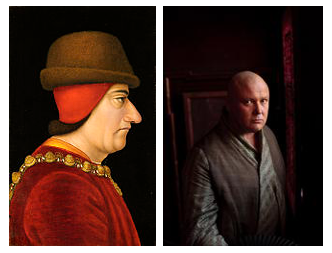
Louis played to Warwick’s ego by addressing him like a friend and a peer—not a subject. He wrote of Louis and Warwick as having common goals and problems. Eventually Louis’ letters softened up the anti-French Warwick; Louis convinced the earl that the only hope for English peace and stability was a French alliance cemented by marriage.
However, the prospect of peace alone probably wouldn’t have been enough to sway Warwick. Medieval nobles were essentially warlords, after all, and Warwick personally had profited from war. Louis likely got Warwick’s support by appealing to something far more powerful: Warwick’s ego.
In the 1450s, when Warwick was still a young man, he was a lauded naval and military commander. He became the toast of England after he reinvigorated the Calais Garrison and had some dazzling military victories. (Warwick successfully fended off an invading Spanish fleet of twenty-eight ships even though he only had five ships.)
Now, seven years later, his fame faded. Warwick missed his glory days and had, perhaps, become insecure about his legacy—something Tywin Lannister would understand only too well. Warwick deduced brokering a French marriage could lead to Louis not only giving him a hefty reward but also, possibly, an increased role on the European stage. Now tempted by these tantalizing prospects, Warwick charted a dangerous course.
Warwick met Louis’ diplomatic envoy in London and quietly began arranging a marriage pact between Edward IV and the King of France’s sister-in-law. With this act, according to historian Paul Murray Kendall, Warwick began tending to his own ambitions rather than acting as the king’s agent.
For the first time, began to keep secrets from Edward. Warwick did not tell Edward he was working with the French. He hoped to play Edward, to sway him gradually towards the match. Warwick realized marriage to England’s traditional enemy was unpalatable.
Edward Chooses an Unsuitable Bride and Humiliates Warwick
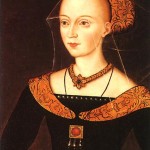
By October 1464, Warwick believed he had convinced Edward to take a French bride. Just before Warwick was to go to France to finalize the treaty, he attended the king’s council in Reading. It was here a secret marriage – with consequences just as disastrous as that of Robb Stark – was revealed.
When the council pressed Edward to tell them whom he wanted to marry, the king smiled and replied his choice might not please everyone.
Assuming he was joking, Edward’s councilors pushed him for a name.
Edward told them he wanted to marry Elizabeth Woodville.
According to Kendall, the council sat stunned and silent. Finally, the Archbishop of Canterbury meekly ventured that although Elizabeth was beautiful and virtuous, she was too humble to be a queen.
Edward then dropped the bombshell: he was already married to Elizabeth Woodville.
Somewhat similar to the way in which Walder Frey was outraged, at least in the books, that Robb married somebody he perceived as being from a house inferior to House Frey, Warwick was furious he would have to tell Louis Edward chose a widowed commoner over the king’s sister-in-law.

Of all the “common” families Edward could have chosen, the Woodvilles may have been the worst possible choice. Elizabeth’s father, Richard Woodville, was born a commoner—even though he was a baron by this time. Richard Woodville had married far above his station, his wife Jacquetta was of the ancient House of Luxembourg, Duchess of Bedford through her second marriage and confidante of Queen Margaret of Anjou. Prior to Henry VI’s defeat the family were staunch Lancastrians. This was enough to earn Warwick’s ire, but Warwick also had a history with Richard Woodville.
Well before Edward ever met Elizabeth, Warwick and Richard Woodville, now Baron Rivers, clashed when Richard refused to his post as the captain of the Calais garrison until parliament give the soldiers their long-awaited pay. As a result, it was nine months until Warwick could assume control of the garrison much to his impatience and fury. When Warwick arrived, he had to win over troops who, due to Woodville’s tough stance, now likely saw Warwick as the man against the man who was trying to help them get paid.
After Warwick left Calais, King Henry VI asked Woodville to chair a tribunal at Woodville’s castle (Rochester) to determine if Warwick was guilty of piracy. Appointing Woodville to the tribunal outraged Warwick, who deemed Woodville far too lowly to judge him. Warwick considered Woodville a social upstart. Warwick got his petty revenge a couple of years later, when Woodville was stationed at Sandwich. A surprise attack was made on his fleet, and Woodville, Jacquetta and their eldest son Anthony were dragged from their beds, paraded by torchlight and insulted by Warwick and two other nobles, who called him a “knave’s son” and a “man made by marriage” among other things.
Consequently, by the time Edward married Elizabeth, Warwick had already nursing a grudge against Woodville for years. After the marriage, increased contact with Woodville and his family no doubt just fueled Warwick’s hatred.
Ultimately, like in the Robb Stark/Lord Frey storyline, Edward’s poor choice of bride led to his downfall. Like the insult Lord Frey felt when Robb spurned his daughters led him to betray Robb, the sting of Edward choosing a Woodville bride led Warwick to change sides, betray Edward, and rebel against him in 1469. The proud earl did not forget the humiliation he suffered because of Edward’s marriage. His thirst for revenge would lead to one of the bloodiest battles in English history.

